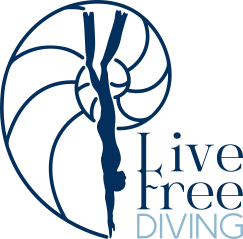Why Yoga Freediving & Yoga go Hand in Hand
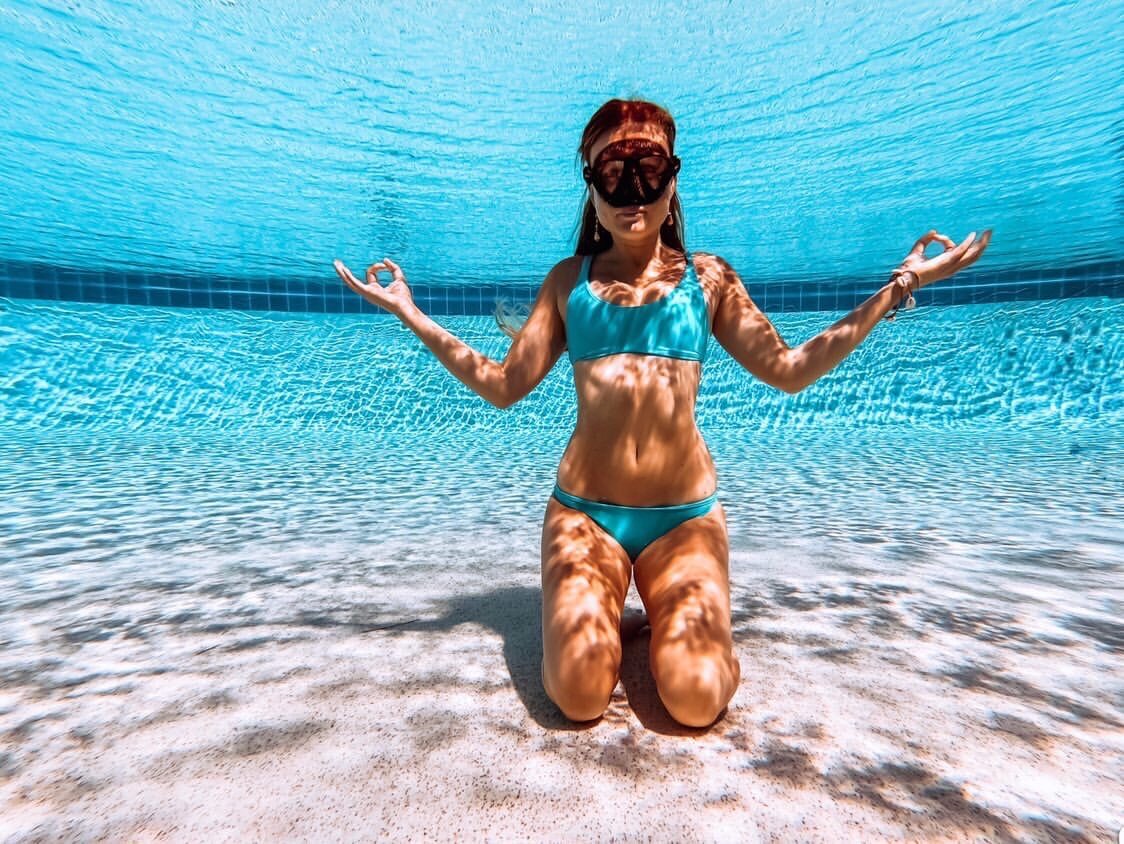
Freediving & Yoga

Why Freediving and Yoga Go Hand in Hand
Yogis have been masters of zen for thousands of years, so it’s only right for us Freedivers to take a page out of their book. There are many reasons why yoga is the perfect compliment for Freediving, we discuss a few here;
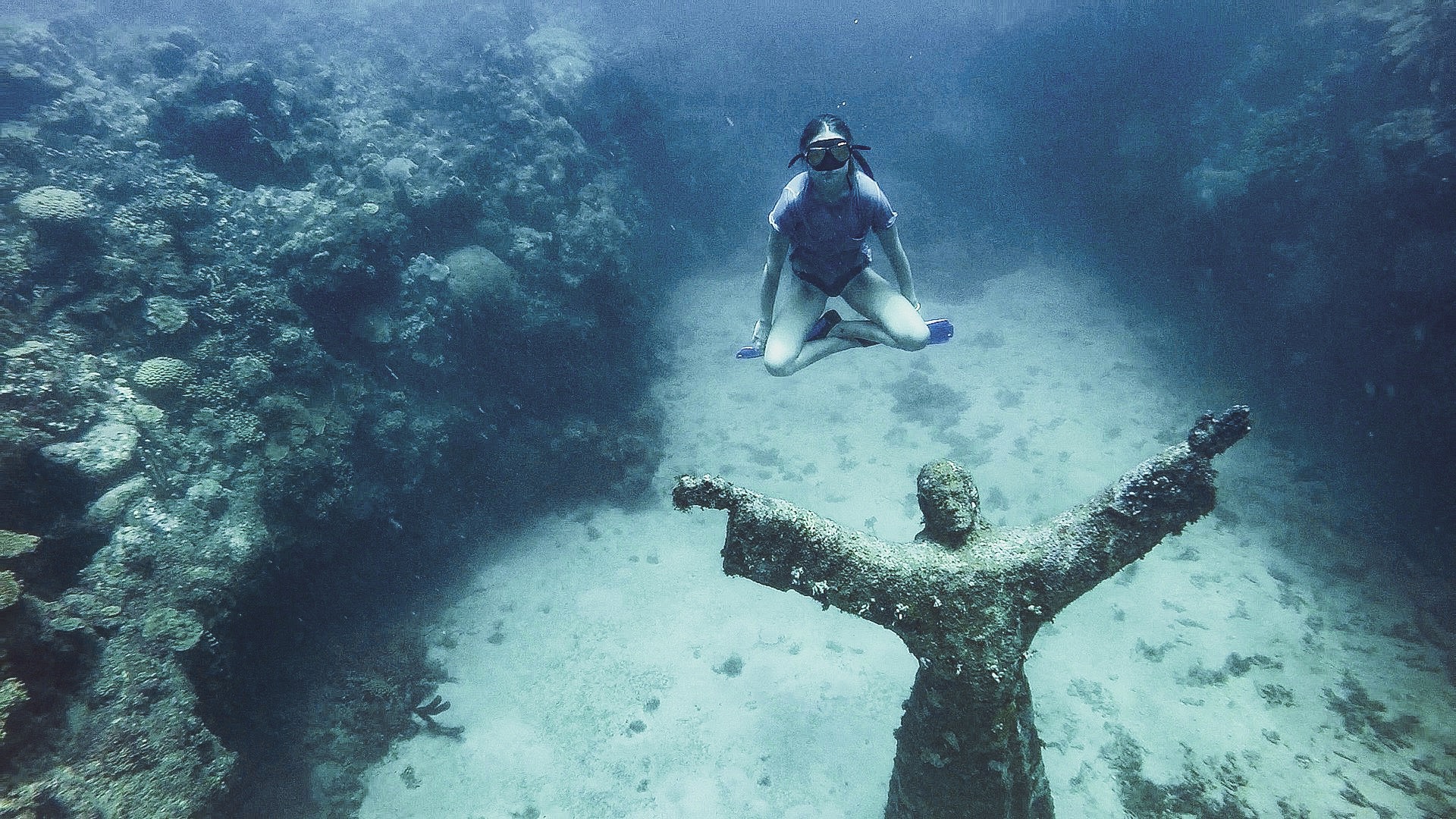
Freedivers Need Flexibility
Tense muscles leads to increased energy exertion and oxygen consumption. Being able to relax as Freedivers not only makes things more comfortable, but also prolongs our dive. Through stretching and meditation techniques, Yoga helps us identify and release areas of tension.
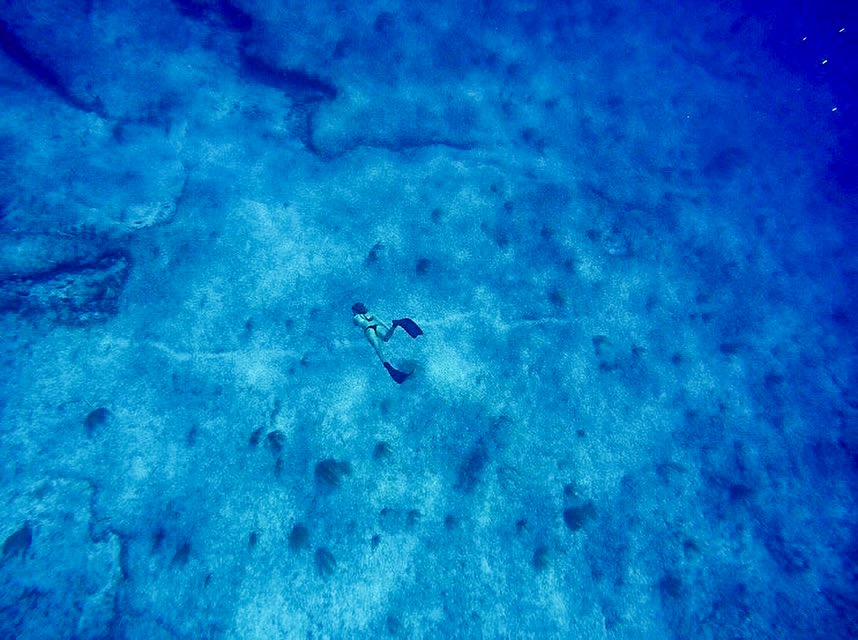
Freedivers Need to be Mindful
Fear and anxiety can be crippling on dryland, in the water they are even more debilitating. Negative thoughts popping up during Freedive sessions or pool training are common for most divers- “Oh geeze, I already feel the urge to breath!” “Man this C02 buildup is uncomfortable!” “What if I blackout!” These are a few examples of negative thoughts that may pop up during a dive, instead of dwelling on or trying to fight off these thoughts, it can be helpful to reframe the way we look at them using mindfulness.
At Live Free Diving, we coach our students to shift from the “thinker of thoughts” to the “observer of thoughts.” By not identifying with the thoughts and mindfully observing them, we can peacefully allow them to come and go, leading to increased relaxation and decreased anxiety. The brain is a vital organ that consumes large amounts of oxygen, a hyper active or anxious mind consumes even more oxygen. By consciously choosing positive thoughts over negative thoughts, we can prolong our dives and increase confidence underwater.
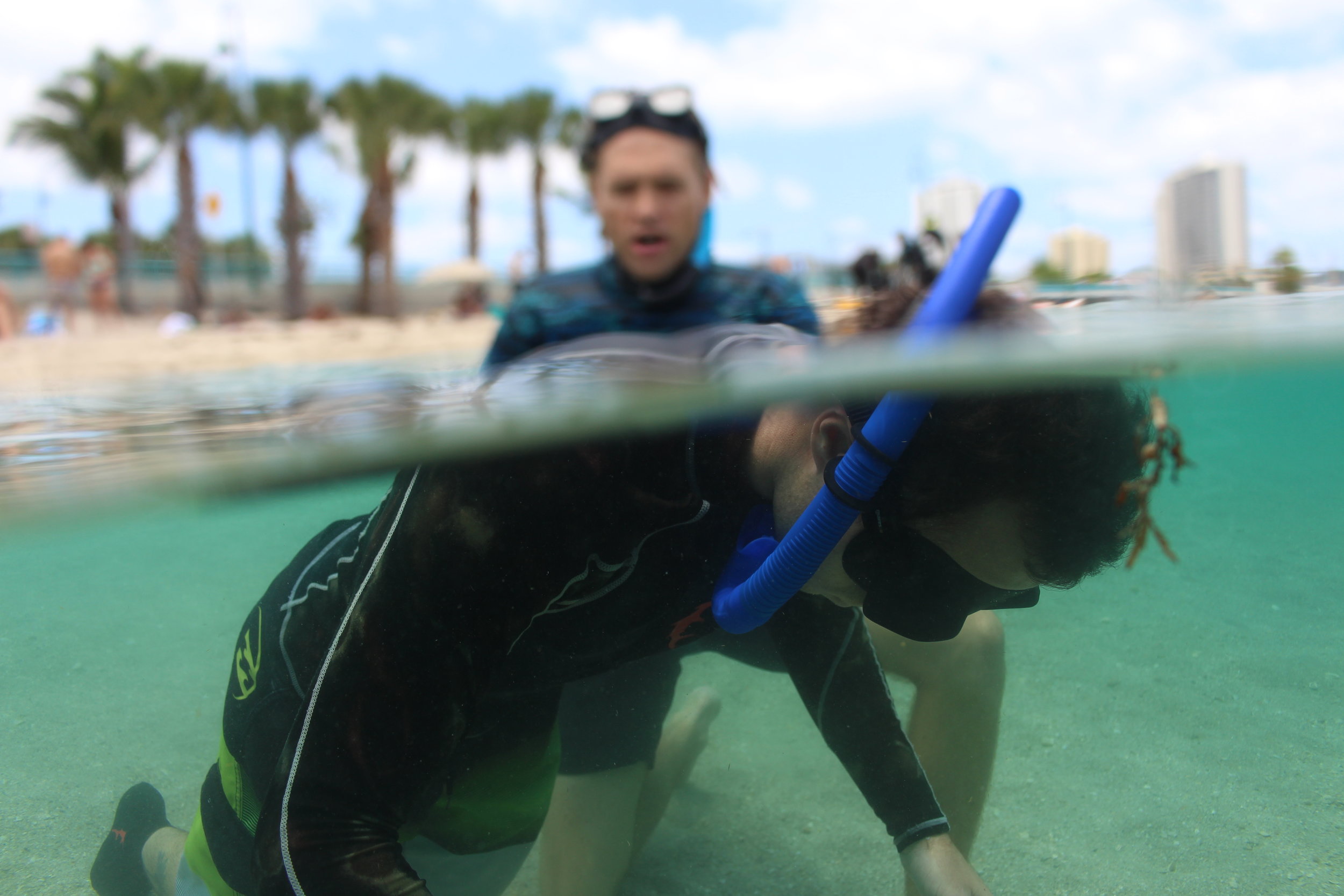
Freedivers Must Master their Breath
If you’ve been to a yoga class before, you’ve experienced the emphasis placed on proper breathing. Yogis believe that the breath is the link between the mind and body and that we can use our breath as a meter to gauge how the rest of our body is performing. For example if our breath is calm and smooth, chances are our mind and body will follow suit. Conversely, erratic or shallow breathing will almost undoubtedly lead to a restless and anxious mind and body (no bueno for Freedivers). Besides observing the tone and frequency of our breath, breathing efficiency can be measured through our heart rate. Heart rate is measured in beats per minute (BPM), this can be thought of like rotations per minute (RPM) of a car engine (higher RPM’s = more gas consumed, higher BPM’s = more oxygen consumed).
Conscious breathing techniques that are taught during Freediving and yoga courses are designed to help relax the body/mind and prep for peak performance. These techniques can help us master our nervous system and promote instant relaxation through activation of the parasympathetic nervous system.
Lastly by regularly practicing yoga and breathwork, Freedivers can increase oxygen intake. It is a common assumption that Freedivers need a large lung capacity for extended breath holds, however, even divers with large lung capacity will be restricted if muscles surrounding the rib cage are inflexible. Think of it like a balloon in a cage, the balloon is our lungs and the cage is our ribs, if the cage is too tight then the balloon will not be able to inflate fully. By stretching and lengthening the muscles around our rib cage, we can take in more oxygen and direct it to areas we never thought possible.
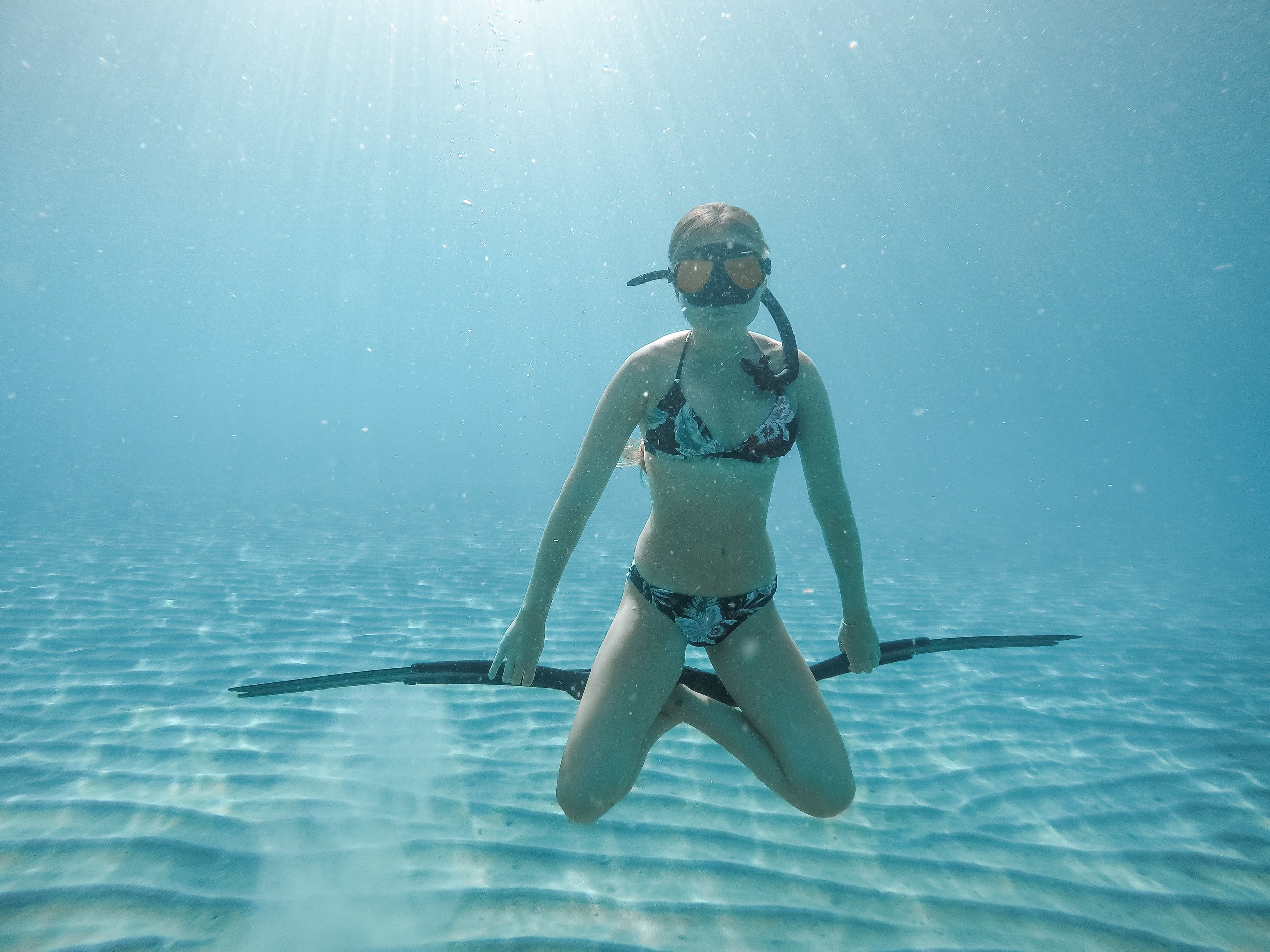
Freedivers Must Become One with the Present Moment
Being able to focus and remain in the present moment is highly emphasized during Yoga. If we break our concentration during Yoga, the poses become more difficult. If we break our concentration during surfing, we fall off our board. If we break our concentration during Freediving, we will increase anxiety and oxygen consumption. To stay present, yogis focus attention on the breath. Since Freedivers are required to hold the breath, we use other methods to stay present. Freedivers can stay present by focusing attention inward and listening to the heart beat and other sensations happening in the body. During line diving sessions, Freedivers can focus on the line directly ahead of them to stay present. Experiment with different methods until you find what works best for you, just remember to remain positive and present.

Yoga can be Practiced Anytime or Anywhere
Yoga does not require much equipment or investment. While attending classes can be beneficial (especially for beginners) it is not absolutely necessary. Develop a routine, understand and master postures and you can take your practice anywhere! This is great for Freedivers that may be landlocked, nomadic, or the workaholics that have little time for water access!
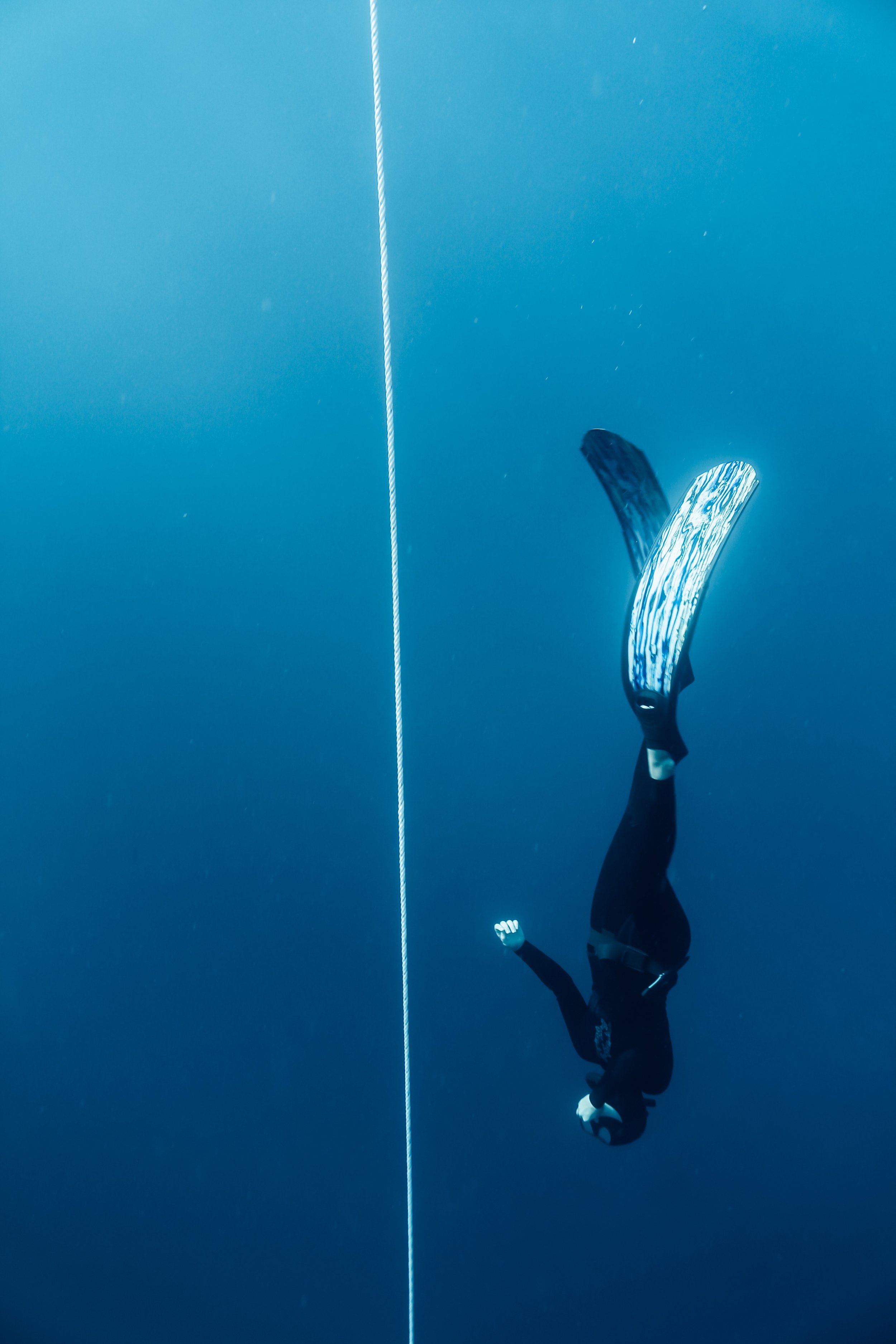
The Argument Against Yoga
I have had many divers express that yoga is unnecessary and has little benefit for freedivers. My response is that if you’re already in great athletic shape and have muscles that are both loose and flexible, you might not experience as much benefit. For the other 99% of people (myself included) who are overworked, over stressed, tensed, and may not be in tip top shape- you will gain a world of benefits from regularly practicing yoga.
We would like to conclude this blog post by paying homage to the divers who have brought yoga to the forefront of Freediving. This list includes legends such as Jacques Mayol, Umberto Pelizzari, Stig Severinsen, William Truebridge, Alexey Molchanov, Sara Campbell, Kate Middleton and many others.
Live Free Diving offers pop-up Yoga for Freediving sessions, times and locations are announced via our Instagram.
